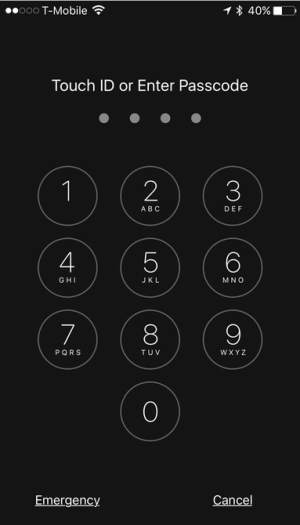As a deadline approaches for new chip-enabled credit and debit cards to thwart data breaches, banks and credit unions are applying another sort of pressure by suing retailers over lax security.
Month: September 2015
How ‘Long Overdue’ Chip Credit Cards Protect Consumers From Fraud
Investigative journalist Brian Krebs, author of the blog “Krebs on Security,” reviews the changes ahead for credit cards and how chip technology is supposed to keep consumers safer.
Google Virtual-Reality System Aims to Enliven Education
This New Campaign Wants To Help Surveillance Agents Quit NSA or GCHQ

The new activist project Intelexit appeals to spy agencies’ staff to consider the morality of their surveillance work and offers a way out.
The post This New Campaign Wants To Help Surveillance Agents Quit NSA or GCHQ appeared first on WIRED.
Hilton investigates hack claims
The Hilton hotel group says it is investigating claims its US shops and gift stores may be the source of a credit-card hack.
Android ‘privacy’ phone revamped
Security firm Silent Circle has revamped its own-brand smartphone that helps people manage data they share with apps
Dr. Levent Ertaul of CSU East Bay, 17 September 2015
Dr. Levent Ertaul provided an overview of five vulnerabilities in cyber and discussed whether privacy is really possible in cyberspace. He discussed secure mail, file and hard disk encryption, password management, cloud storage and deleting files. Dr. Ertaul is a Professor of Computer Science at California State University East Bay. He is actively involved in security projects nationally and internationally. He has over 25 years for experience in the military and private security industry and has more then 80 publications in security issues. His current research interests are cyber security, privacy, wireless security and cryptography. He is a member of IEEE, ACM, IACR and the Bay Area Council. He was awarded his Ph.D. from Sussex University, UK.
Dr. Gabrielle Horosanu of the Romanian Ministry of Health, 4 September 2015
Dr. Horosanu presented her research investigating the links between medical research, bioterrorism, and cybercrime, titled: “Connecting the Dots: Germs and Pixels.” Dr. Horosanu is currently the adviser to the State Secretary in the Romanian Ministry of Health. In addition, she is the Security and Defense Advisor to the VP of International Affairs in the Security and Defense Group of the European Parliament. She has served as both a Political Officer and Research Fellow in the Science for Peace and Security Progamme of NATO’s Emerging Security Challenges Division. She also holds positions as a Researcher in the Bucharest University of Medicine and Pharmacy as well as a Lecturer at the National Defense College of Romania.
New Reports Describe More Mass Surveillance and Schemes to Undermine Encryption

While a US government task was pondering ways to undermine encryption, British spies have been recording the browsing habits of Internet users.
The post New Reports Describe More Mass Surveillance and Schemes to Undermine Encryption appeared first on WIRED.
Forcing suspects to reveal phone passwords is unconstitutional, court says
The Fifth Amendment right against compelled self-incrimination would be breached if two insider trading suspects were forced to turn over the passcodes of their locked mobile phones to the Securities and Exchange Commission, a federal judge ruled Wednesday.
“We find, as the SEC is not seeking business records but Defendants’ personal thought processes, Defendants may properly invoke their Fifth Amendment right,” US District Judge Mark Kearney of Pennsylvania wrote.
The decision comes amid a growing global debate about encryption and whether the tech sector should build backdoors into their wares to grant the authorities access to locked devices. Ars reported today that an Obama administration working group “considered four backdoors that tech companies could adopt to allow government investigators to decipher encrypted communications stored on phones of suspected terrorists or criminals.”




You must be logged in to post a comment.